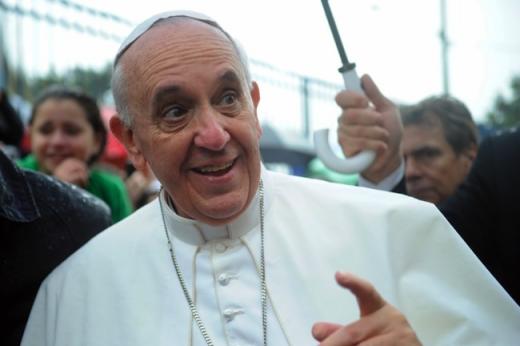The fascination with Pope Francis continues as he approaches the second anniversary of his election. For instance, the New York Review of Books, Harper’s, Time magazine and Rolling Stone have all published articles on him in the past 15 months.
The white smoke had hardly cleared when Francis appeared on the balcony in St. Peter’s Square after his election. But he didn’t lay down the law as his two immediate predecessors were fond of doing. Instead, he asked the people assembled to pray for him. Soon after, he returned to the hotel, where he had been staying during the conclave, in order to pay his bill. And what’s even more surprising, he chose to live in a guest house for clergy adjacent to St. Peter’s Basilica rather than occupying the papal apartments.
Of course, there’s no doubt that Francis wants to shake things up in an institution where the pace of change is glacially slow. First, he wants to move the institutional church and its clergy, including bishops, away from a mindset of privilege to one of service to the world. It’s for this reason that the symbolism embedded in his simple lifestyle is so potent.
Secondly, he wants to shift away from the monarchical papacy, where all wisdom and authority are assumed to be vested in the bishop of Rome. Francis also wants to share in decision-making with the church’s 5,000 bishops, just as Vatican II foresaw 50 years ago.
But Francis is especially concerned about the plight of the poor. As the Archbishop of Buenos Aires, he was known for his solitary pastoral visits to people in the slums. To get there, he rode by subway to the end of the line. That’s before trudging in his orthopedic shoes along muddy, garbage-strewn roads.
In November 2013, Francis devoted much of his first major written teaching to an unflinching criticism of unfettered market capitalism, describing it as “an economy of exclusion and inequality” based on the “idolatry of money.” Francis is also preparing an encyclical on climate change for release in 2015. In October 2014, he said that “an economic system centred on the god of money needs to plunder nature to sustain the frenetic rhythm of consumption that is inherent to it.” Interestingly, Peter Foster, a National Post columnist, dismissed the pope as an “economically challenged” progressive in his analysis.
Despite being kind, pastoral and economically progressive, however, Francis remains doctrinally conservative. There will, for example, be no ordination of women on his watch. “The church has spoken and said no…that door is closed,” he said in a news scrum in 2013. He also made a tone deaf remark in an otherwise exemplary address to the European Parliament in late 2014, describing Europe as “a grandmother no longer fertile and vibrant.” Unfortunately, Francis fails to see that the role of women, too, is an issue of fundamental justice — one inextricably linked to questions of poverty, inequality and violence.
This piece appeared in my blog with the United Church Observer on February 26, 2015.




